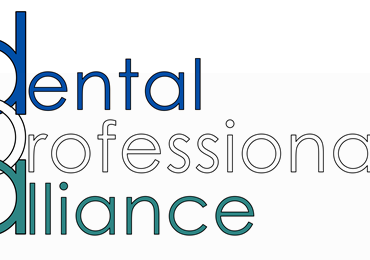Ensuring UK graduates are prepared for practice

Manjula Das, Head of Education Policy and Quality Assurance, explains how the GDC are working to ensure that UK graduates are prepared for practice.
The GDC exists to protect, promote and maintain the health, safety and well-being of patients and the public. As Head of Education Policy and Quality Assurance, I need to be assured that the standards for training that we set (through the learning outcomes in Preparing for Practice) are of the right level and that the quality assurance activity we carry out is robust enough to ensure that new graduates who join our registers are safe to treat patients.
In a profession of lifelong learning, having a defined point to mark the transition (from student to dentist), might seem somewhat arbitrary, but as the regulator we must have a distinct point at which we can say that these individuals are safe to treat patients compassionately and competently.
Why are we looking into this?
In 2013, the GDC published Transition to Independent Practice which looked at new UK graduates' preparedness for practice and found that there was no increased risk of fitness to practise or a greater risk to patients from new registrants. However, we continue to hear anecdotal evidence that there are gaps in the knowledge and skills of new registrants and we want to explore this further to see if there is any evidence to support this. If so, we will then be better equipped to start developing and implementing the necessary and relevant changes.
What are we doing?
Since summer 2018 teams across the GDC have been working on our first thematic review, which is essentially a research project regarding the preparedness for practice of UK dental graduates. We decided to focus on dentists in the first instance, as they have the greatest responsibility within the dental team. Dentists assess and undertake irreversible procedures on patients.
In order to determine if there is any evidence that new dental registrants are not as prepared for practice as they should be, we established a comprehensive qualitative and quantitative research plan to collect feedback from a range of key individuals and groups. This included:
- A survey of foundation/vocational trainee dentists in June 2018 and repeated in June 2019, with a view to following up with interested individuals for further information in the summer of 2020;
- A survey of foundation/vocational educational supervisors/trainers in November 2018;
- A qualitative workshop with up to 70 training programme directors, associate deans and postgraduate deans in May 2019;
- A follow up survey of the postgraduate trainers and assessors in June 2019;
- A literature review which is currently taking place.
It is important to highlight that after qualifying from dental school, the majority of UK graduates choose to spend a year in foundation/vocational training which will allow them to gain a performer number and work under the NHS dental contract. A performer number is a compulsory requirement for anyone wishing to work in the NHS. However, foundation/vocational training in dentistry is not a compulsory part of pre-registration training and dentists can apply to be fully registered with the GDC upon graduation.
What happens next?
We aim to share the findings of this research in advance of our education conference in November (details will be shared shortly) with key individuals and stakeholders including: undergraduate and postgraduate deans, students, foundation/vocational trainees, those who have completed foundation/vocational training recently, those who assess foundation/vocational trainees, Chief Dental Officers and, of course, patients and the public. By sharing our findings, we want to collaboratively develop proposals on how, where and by whom improvements can and should be made. The GDC intend to publish a report with the findings and recommendations early in 2020, which will be informed by the research and the discussions and feedback from the conference.
We are keen to update interested parties on the key headlines and themes that are emerging from this exciting research. From the surveys carried out last year we have identified that graduates rely heavily on foundation/vocational training to bridge the gap between graduating, where they are safe to begin treating patients', to becoming an independent practitioner. There are several issues and challenges including:
- Potential issues with allocating undergraduate places for dentistry primarily, but not exclusively, by academic achievement, which is not necessarily the best indicator of how good a professional the student will be in the future.
- Concerns about the teaching of professionalism in dental schools.
- Erosion of confidence between graduation and commencement of foundation training (typically a three-month period).
- The transition from undergraduate to postgraduate training is not always as seamless as it could be.
- Variation in the expectation and views between foundation/vocational trainees and trainers/assessors.
These are areas that we have explored further in the qualitative research this year and the literature review.
The GDC's priorities are patient and public safety and we are undertaking this research to better understand if there are issues with some new registrants, and if so, what we can proactively do with our stakeholders (namely undergraduate and postgraduate dental education providers) to address them. These early findings do raise some concerns with us. With power and knowledge comes great responsibility. Only by knowing and being aware of what the real issues are, can we start to tackle them proactively and that is why it is so important for us to be carrying out this research in a robust manner.
Working together is so important
We are very aware that we don't work in a vacuum and that, in order to make practical and realistic changes for students, registrant trainees and patients, the GDC will need to work with those involved in undergraduate and postgraduate education, as well as listening to the voices of students and trainees. We expect that there will be changes which the GDC and others will need to make as well as a need for further collaborative work. This is a challenge that we are tackling head on. It's a challenge that I am enjoying, not least because I think we can collectively make a real difference to improve the quality of training and support for students, which in turn will lead to realisable benefits of patients and the public. Look out for further information on the progress of this project in the near future.
 eGDC
eGDC









